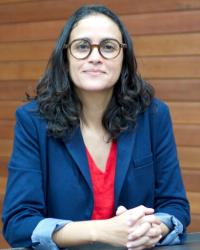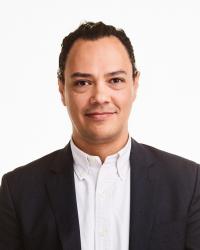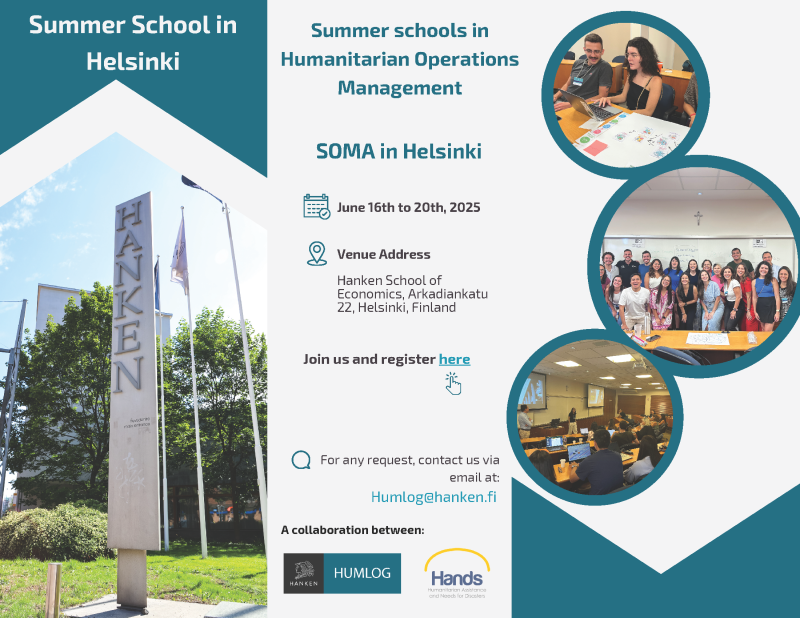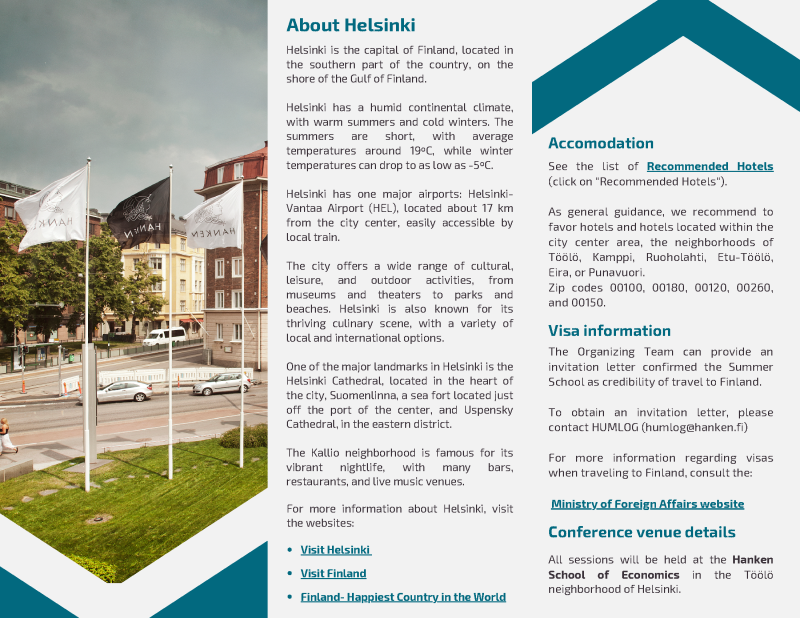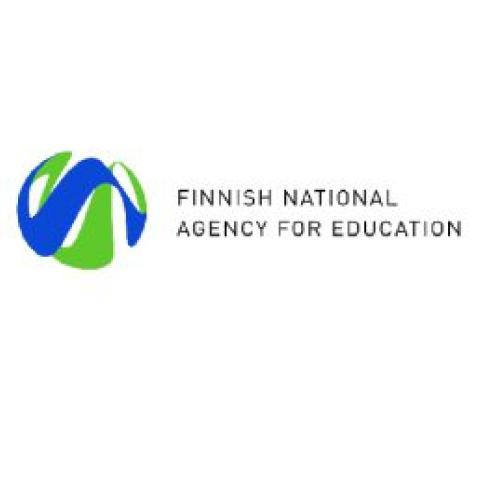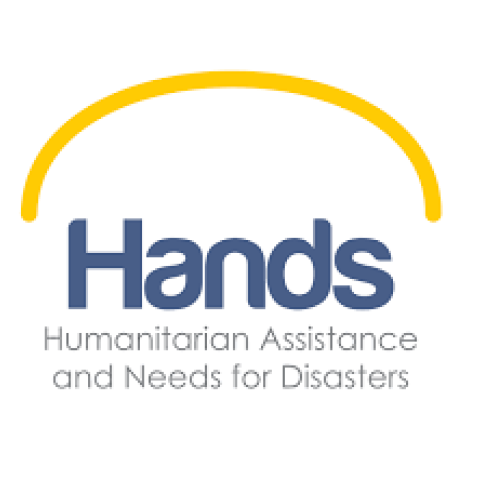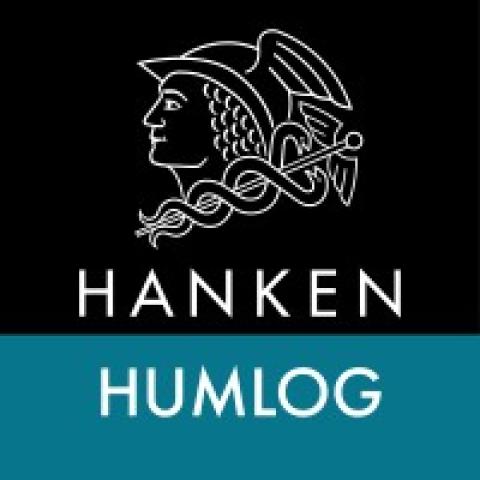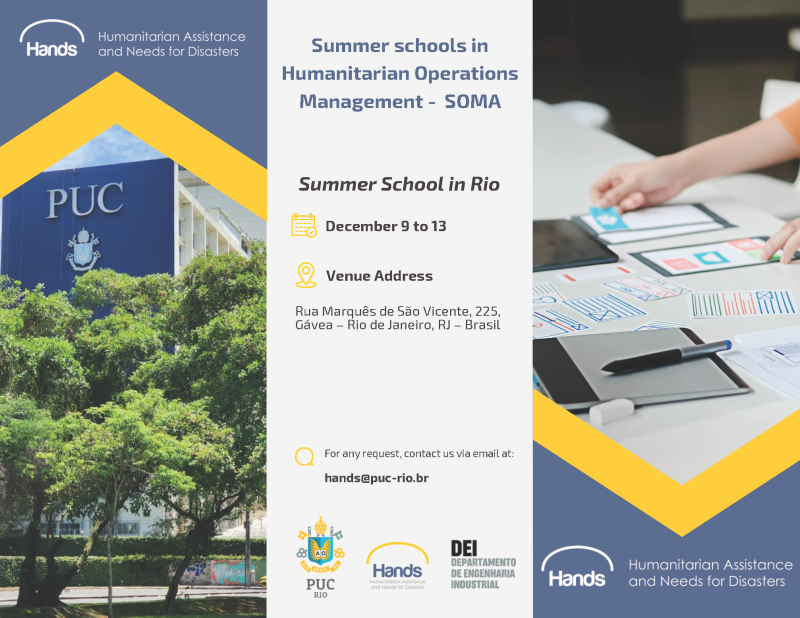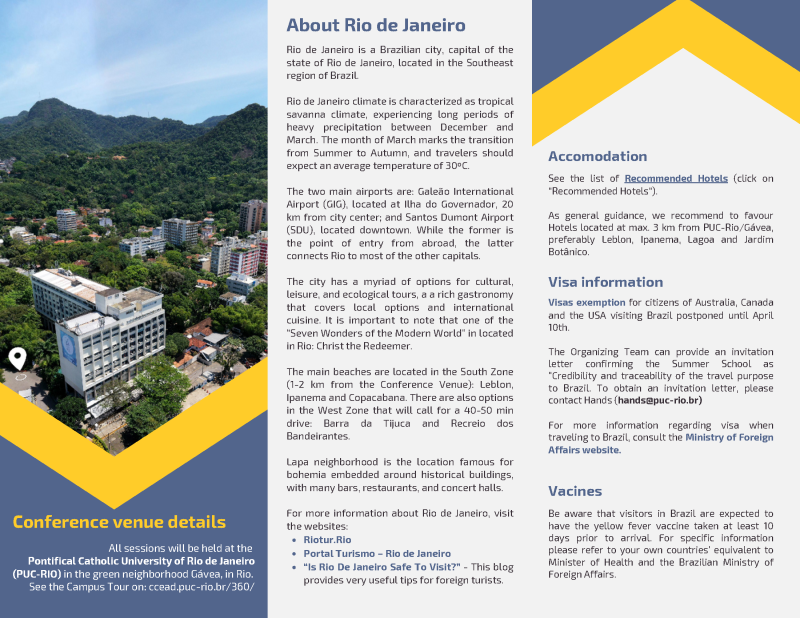SOMA Summer Schools 2024 - 2025
SOMA is funded through the 2023 Team Finland knowledge programme ensuring free registration and participation. The course is being hosted collaboratively between the Humanitarian Assistance and Needs for Disasters lab (HANDS) at PUC-RIO in Rio de Janeiro, Brazil, and the HUMLOG Institute at Hanken School of Economics in Helsinki, Finland.
The first round for the December SOMA in Rio course is now closed and focused on the SDGs.
The second application round for the June SOMA in Helsinki course is now closed and will focus on sustainability in times of crisis.
| Course Content (SOMA in Hel) | Featured Educators |
|---|---|
| Humanitarian Operations & Sustainability | Adriana Leiras, PhD |
| Research methods to analyze the interlinkages between Humanitarian Operations & Sustainability | Diego Vega, PhD |
| Policies to explore synergies between Humanitarian Operations, Crisis Management, and Sustainable Initiatives | TBA |
There will also be opportunities for students to present their research and discuss synergies and avenues for collaboration.
Course Coordinators and Lead Educators
Adriana Leiras, adrianaleiras@puc-rio.br, has been a Professor on the Teaching and Research Board at the Department of Industrial Engineering since 2013. Her research interests focus on Humanitarian Operations and its interfaces with sustainable development, covering the intersection of engineering, management, and public policy. Her research adopts multi-method approaches (qualitative and quantitative) to design and evaluate policies and strategies to develop more efficient, effective, and equitable Humanitarian Operations.
She is the founder and Coordinator of the HANDs laboratory – Humanitarian Assistance and Needs for Disasters. She is the leader of the CNPq Research Group entitled Logistics and Humanitarian Operations. She is also the regional humanitarian logistics and disaster response operations project leader for the MIT SCALE Latin America Network and current Ex-officio advisor of the POMS Caribbean & Latin American Chapter.
Diego Vega, diego.vega@hanken.fi. Diego Vega is Associate Professor of Supply Chain Management and Social Responsibility, especially Humanitarian Logistics at Hanken School of Economics, Finland and Director of the HUMLOG Institute. He has over 13 years of experience in conducting research in humanitarian logistics with and for international humanitarian organizations, and is the recipient of the American Logistics Aid Network's (ALAN) research and academic contribution award. Some of Diego's recent research projects include the analysis of Swedish and Danish Red Cross supply chains, sustainable closed loop supply chains in the shelter sector, MSF's intersectional response to COVID-19 during ongoing operations, and the creation of a common data standard for humanitarian organizations. He is also Associate Editor of the Journal of Humanitarian Logistics and Supply Chain Management and the creator of the first humanitarian logistics Massive Open Online Course (MOOC). Diego's research interests include logistics services in humanitarian operations, temporary supply chains, modularity, and qualitative methods.
FAQ
What language is the course held in?
English, with a recommended C1 level minimum.
Will this course provide academic credit?
No, however we can provide a certificate of attendance upon request.
Is lodging, food, or transportation included in the course?
No, applicants are expected to cover costs themselves.
Where in Rio de Janeiro is the course hosted?
At the PUC-Rio campus.
Where in Helsinki is the course hosted?
At the Hanken School of Economics.
With any further questions, please contact hands@puc-rio.br.


